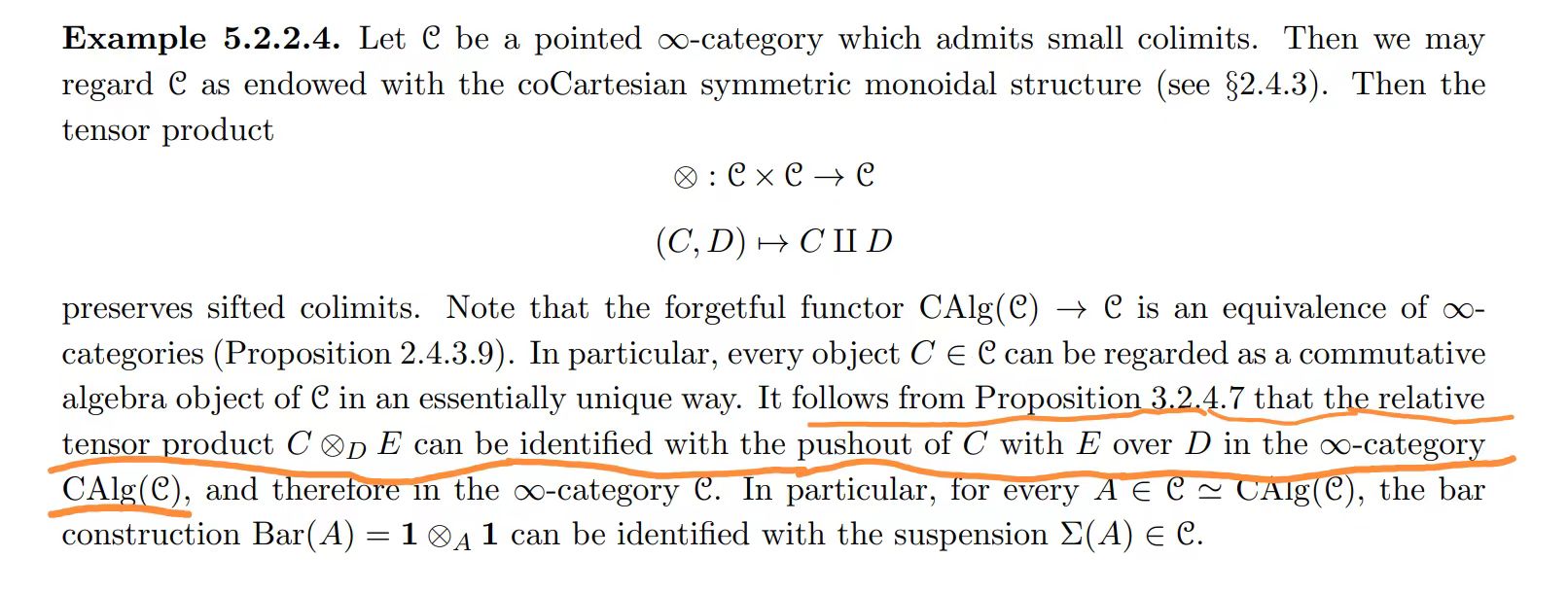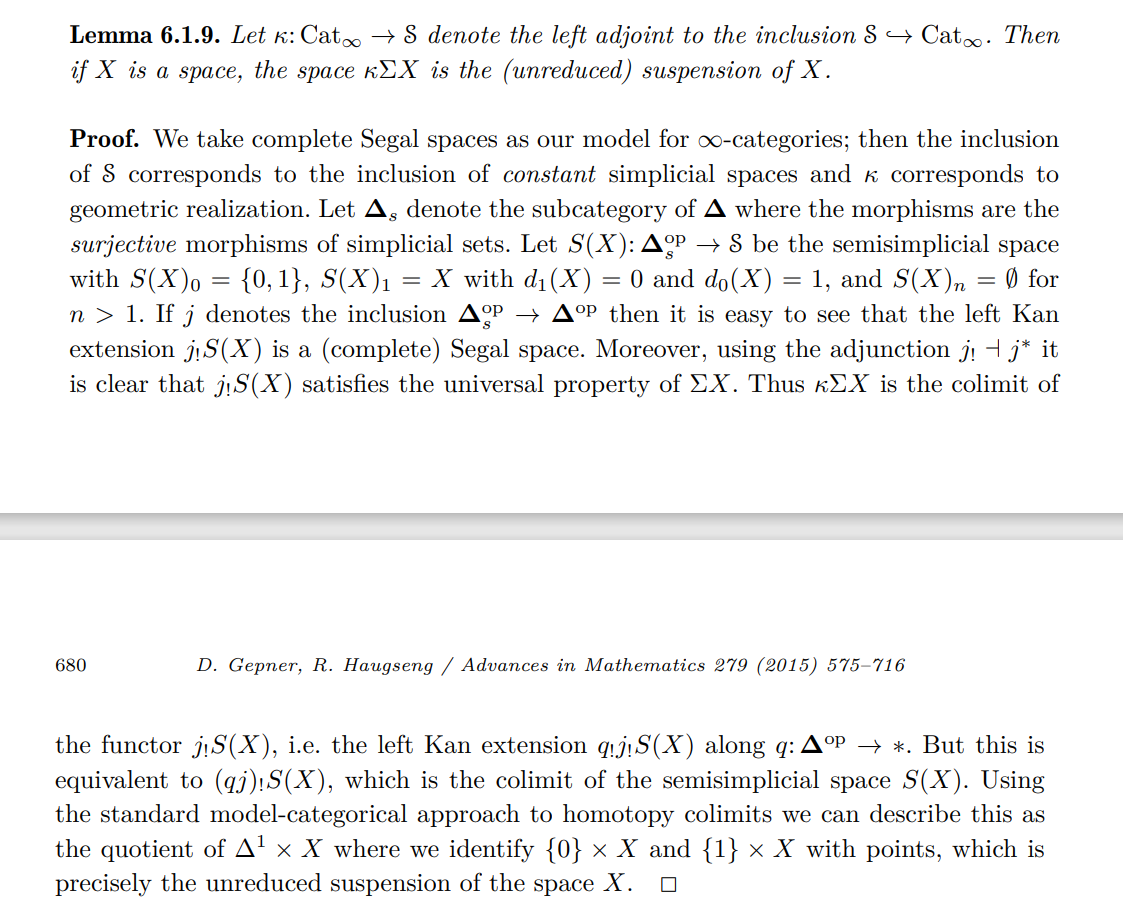$\DeclareMathOperator\colim{colim}$ Also asked in MathStackexchange here
This is a statement in Lurie's Higher Algebra 5.2.2.4.
 Proposition 3.2.4.7 in HA said that the monoidal structure on $\text{CAlg}(\mathcal{C})$ is cocartesian. I don't know why this implies that the relative tensor product is identified with the pushout.
Proposition 3.2.4.7 in HA said that the monoidal structure on $\text{CAlg}(\mathcal{C})$ is cocartesian. I don't know why this implies that the relative tensor product is identified with the pushout.
By [HA, 4.4.2.8], in a monoidal $\infty$-category $(\mathcal{D},1,\otimes)$, the relative tensor product is calculated by two-sided bar construction, i.e. $C\otimes_DE=\colim_{[n]\in\Delta^{\rm op}}C\otimes D^{\otimes n}\otimes E$
In our case $\mathcal{D}={\rm CAlg}(\mathcal{C})$, the tensor product is given by coproduct, we have $C\otimes_DE=\colim_{[n]\in\Delta^{\rm op}}C\coprod D^{\coprod n}\coprod E$
We need to show that $C\coprod_DE=\colim_{[n]\in\Delta^{\rm op}}C\coprod D^{\coprod n}\coprod E$ naturally. I didn't find a good way to prove this.
Edit:
I found a similar question in Gepner and Haugseng's "Enriched $\infty$-categories via non-symmetric $\infty$-operads"

They calculated a certain geometric realization, which turned out to be the homotopy pushout ${\rm pt}\coprod_X^h{\rm pt}$. I need more details about the "standard model-categorical approach" stated here
I think the two situation is essentially the same, but I didn't know how to treat either case.
